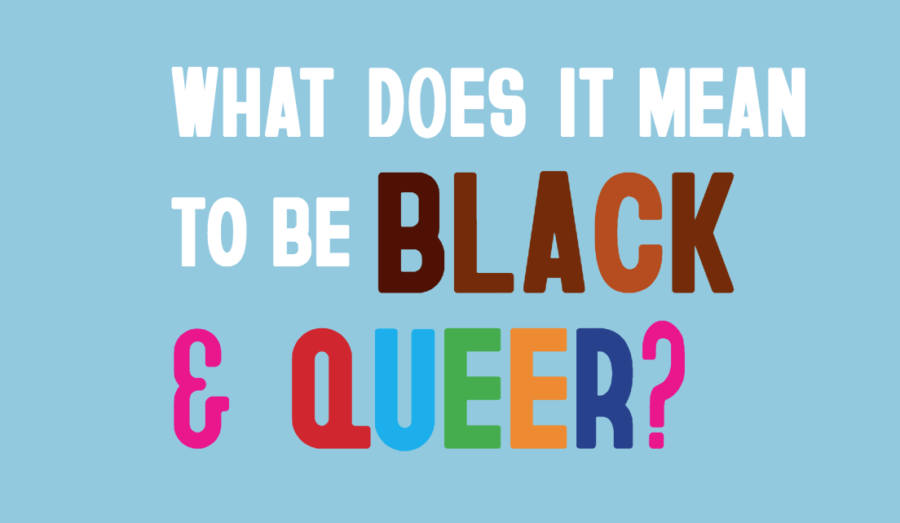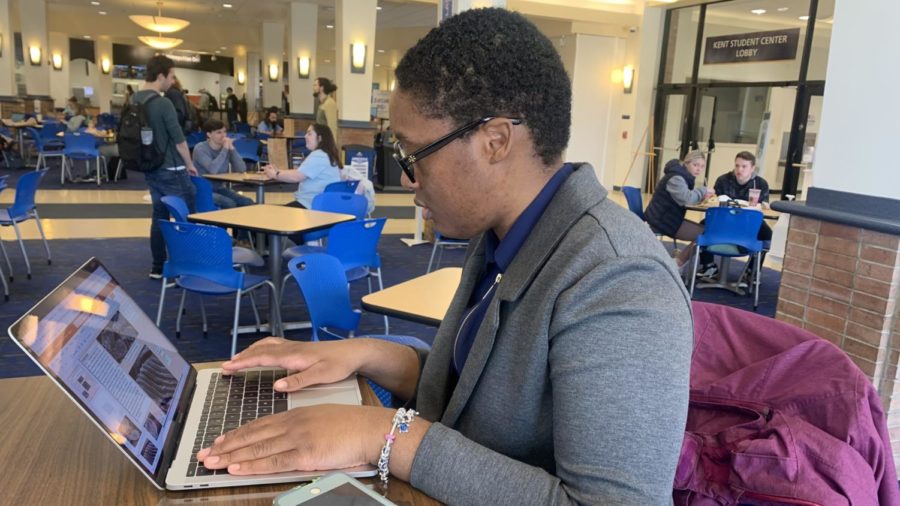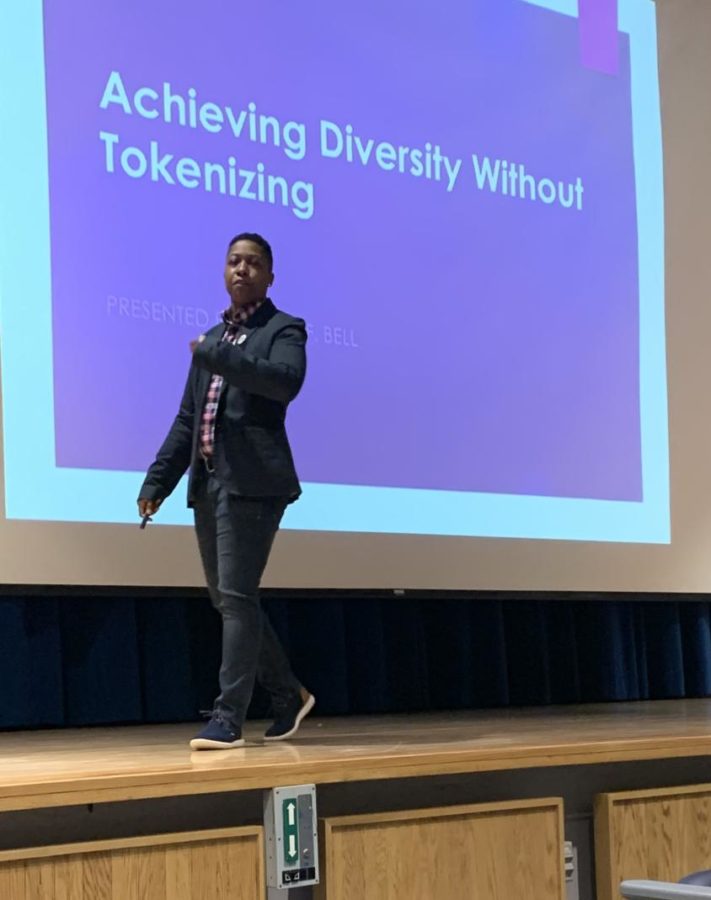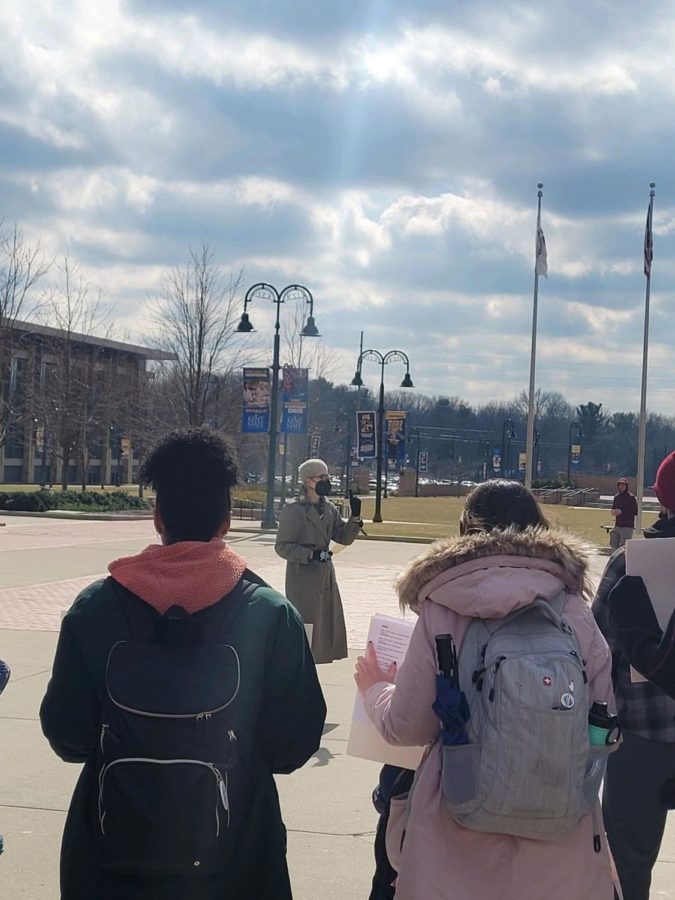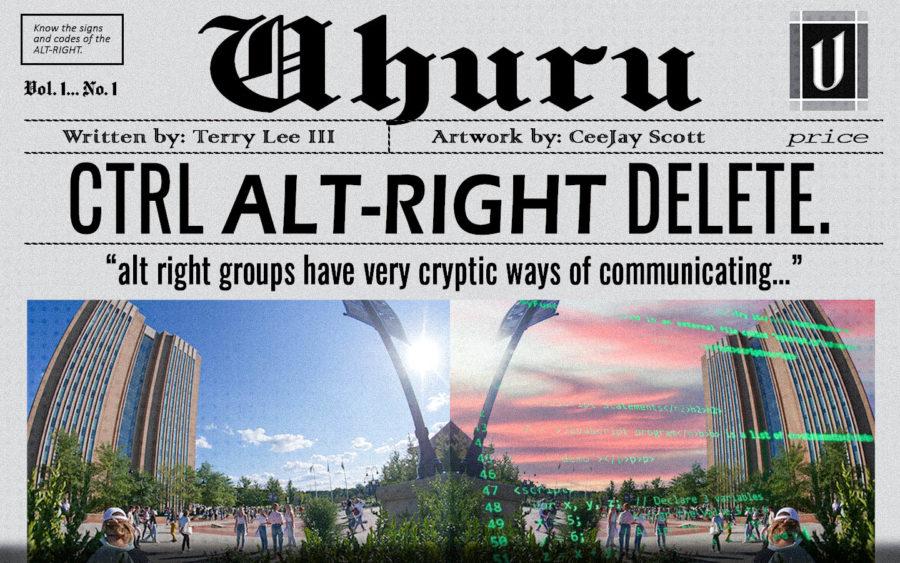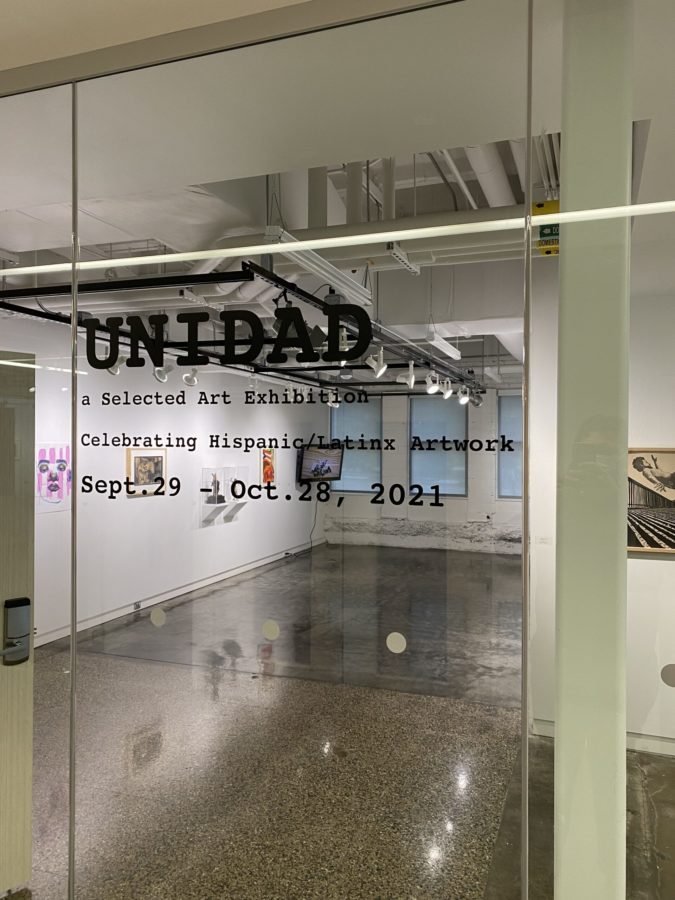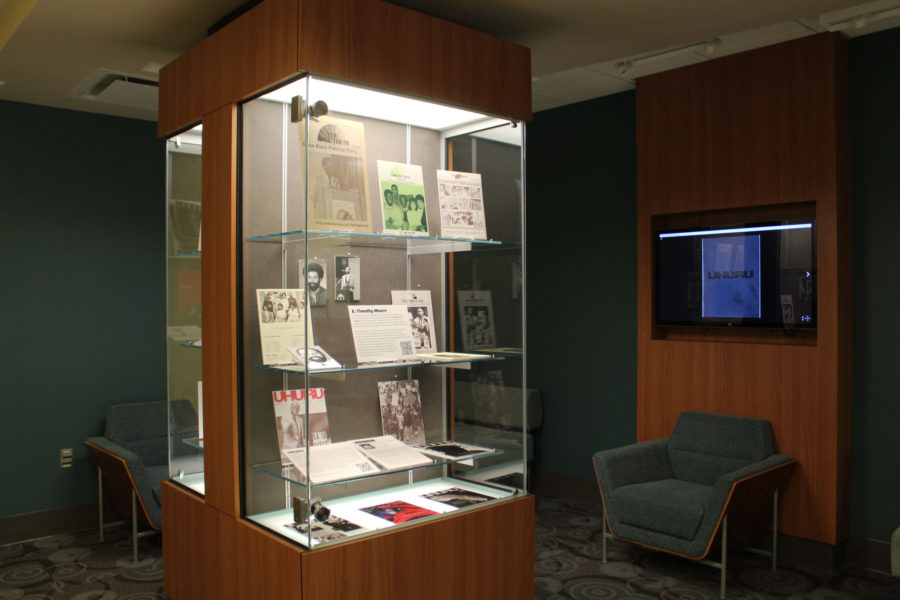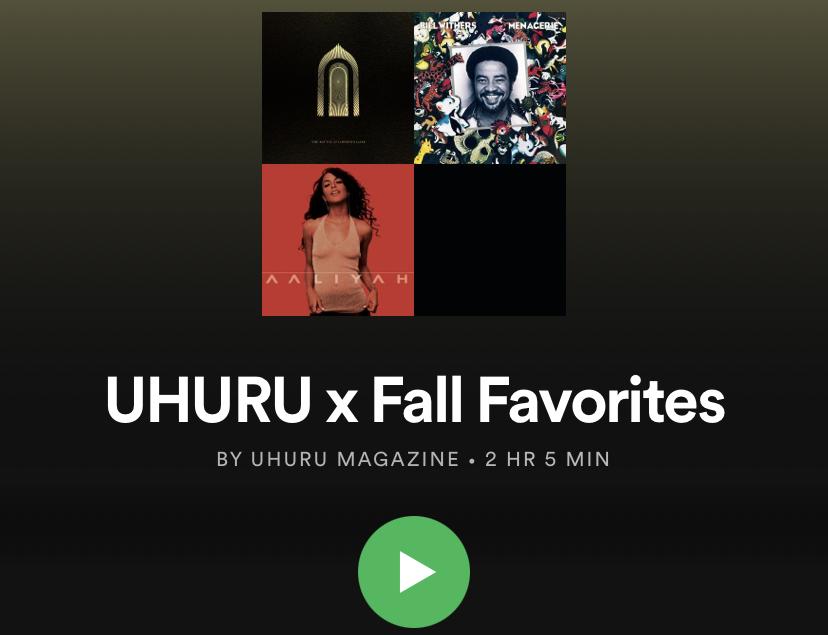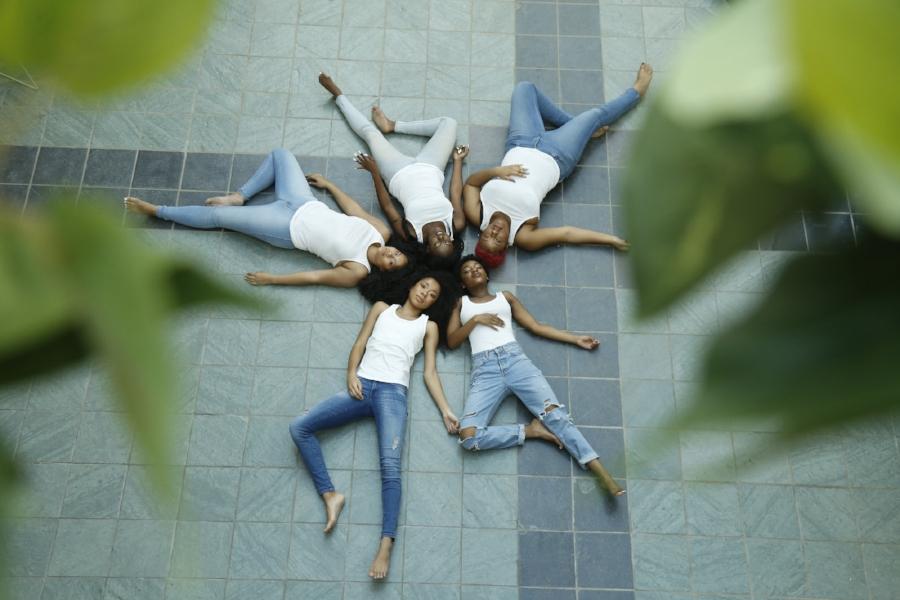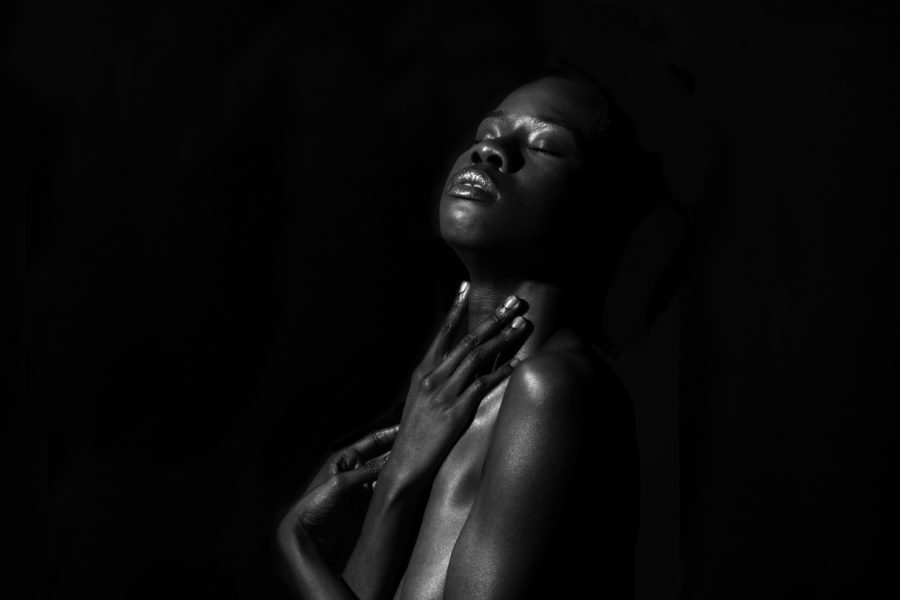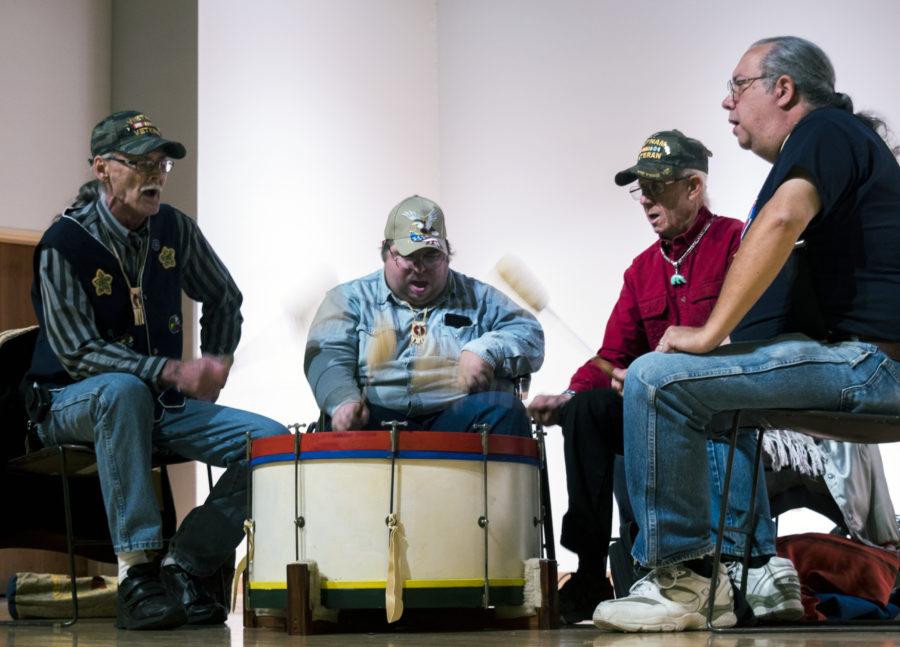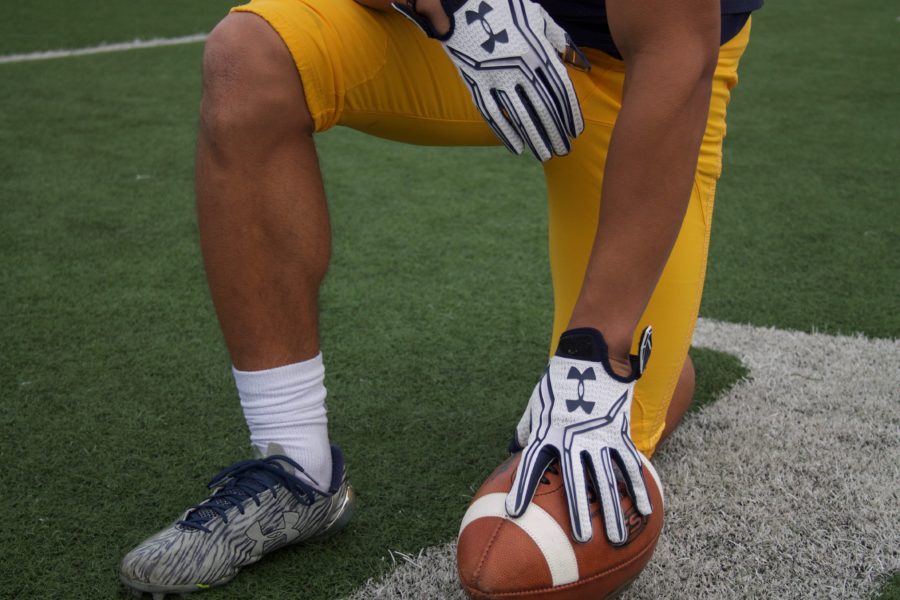Jordin Manning, 20, They/Them
Jordin is a third year sophomore at Kent State University studying psychology. They identify as Non-Binary & Sapphic and uses they/them pronouns. I chose Jordin for this interview because they have worked in the LGBTQ community since coming to Kent State. Altogether, Jordin has had positions in Threads, an organization that focuses on the intersection of being a queer person of color. They’ve also be involved in PRIDE!Kent, Fusion Magazine and Transfusion. Currently, Jordin is President of Threads and is the Activism Initiatives Chair for PRIDE!Kent.
- What does it mean to be black and queer?
- “I think about it a lot because of the oppressive forces that are against time, but I also don’t think about it because it’s just my reality. So, really what it means is that its something that is always present whether people like it or not and I think that’s what I like about it and it can be a disadvantage. Especially if you’re somebody that’s like flamboyant or gender non-conforming and constantly like pretty much either has too or ends up presenting in such a way that’ll give that away for you.”
- Do you ever have to leave a part of yourself at the door in either or both of those spaces?
- “Absolutely, there are times where I just know that me being like, “Hi I’m Jordin and I go by they/them pronouns”, is going to be taken terribly and horribly and will be ignored. Sometimes I’m not so much worried about me talking about like oh yea “I’m Jordin and I’m Sapphic” in like academia because like if they do anything extreme I can report them to student conduct and that’s kinda a privilege for me, but I always been like well I’m never gonna see these people again so who gives a fuck.”
- “However, with leaving my blackness at the door it’s a lot more, I feel like at times, a lot more complicated because well I’m doing it pretty much all the time because I’m at a PWI. I just, sometimes things hit me in the face and it’s like wow you’re really bold. A lot of times, literally in my classes, people will make micro-aggressive comments about black people and they’ll put on a Blaccent or they will appropriate AAVE in my presence or they don’t take me seriously in academic spaces or in (for instance) white queer spaces they will not take my voice seriously and they’ll take it with a grain of salt or they’ll listen to me for brownie points but completely forget what I said and just keep doing it and then expect me to let them know when they mess up even though I told them already which is exhausting because why do I have to do that. That’s your part. I’m not doing all the work.”
- How do people in the community react to you being non-binary?
- “Since a lot of people don’t care to understand being nonbinary cuz there are some people who don’t understand it, but they want to and that’s fine like not everybody is gonna know that I go by they/them pronouns but there’s other people who just have an aversion or what I have known to be called as transmisia or homomisia. (-misia means aversion) as opposed to phobia to not further stigmatize people who have legit phobias. They just have an aversion to being trans period so you like being anything but cis is going to upset them and make them be super violent or just terrible to you so I really have to gauge that and sometimes I end up having to present as cisgender which is at my own expense because dysphoria is terrible especially social dysphoria so I definitely have to be careful about policing my identity around black spaces. I just have to gauge the room and also see where my allies are because if I don’t know anybody then no it’s not gonna happen but if I already know people and I know they would stick up for me then it’s like okay well I can do this and if they don’t like it well sucks to suck.”
Rue Monroe, 26, They/Them
Rue is a third year sophomore at Kent State University studying costume design & technology. They identify as Afro-Latinx(o), Non-Binary specifically Bi-Gender, Pansexual/Bisexual & Polyamorous and Greyromantic. I chose Rue because they have been active in their community as President of Kent State URGE and has participated in many campus protests and events. They have a strong voice within the community and makes sure that intersectionality is included in every conversation.
- What does it mean to be in a black queer relationship?
- “It is reassurance and acceptance. I’ve been in relationships with other black queer people in the past and I never really felt more at home and like myself than I have with another black queer person because they’re just only things another black can understand from a black person”
- “There is just a culture with being black that you can’t internally explain that one person just knows the other person you would just have to be black to understand it. Me and my partner both growing up as black femmes we understand…there are just things we talk about that it’s almost like we were siblings cuz we grew up in the same household, there’s things their mom has said that my mom has said we’ve had similar hairstyles”
- What does it mean to be Black and Queer?
- “To be black and to be queer is to be a part of history. To be and black and to be queer is great but also hard. Because I love being me and I love these intersections about me, but it can be hard because society almost wants to tear you apart and put you into these boxes that my identity doesn’t fit into. So, to be black and to be queer is a blessing and a curse”
- Why aren’t certain identities in the queer community inherently queer?
- “So, Polyamory (for example) is something that can exist that isn’t necessarily gay because you can be polyamorous and straight, and queerness is something reserved for someone in the LGBTQ spectrum. Polyamory is an amplifier not inherently queer.”
- “You can be a part of the LGBTQ+ community but they could not identify as gay or queer if they are straight and/or cisgender”
Tyrone Curry, 19, He/Him
Tyrone is a second ear sophomore fashion merchandising major and a costume design minor here at Kent State. He identifies as a cisgender, gay male. I chose to interview Tyrone because he is someone that I consider a good friend and I thought that he would make a great addition to my story. He is Director of Programming for Textures, Vice-President for Exquisite, Director of Fundraising for Voices of Testimony Gospel Choir and also won Prince for the 2017 Renaissance Ball. He is a recognizable face within the community here at Kent State and I would love for people to know more about him.
- What does it mean to be black and queer to you?
- “Motivation. It adds an extra layer of motivation for me. It’s double the motivation. I get motivated by like everything pretty much so like even conversations I can take something from it and I can have it motivate me so just being able to have my identity which I have everyday”
- Do you ever feel that you have to leave a part of yourself at the door when you enter either space?
- “In a Black space no because you really can’t take your skin off so either way I’m going to be black and always use being black just to really motivate me in every way. Any realm any seeing that I’m in I just allow it to motivate me. But being gay I do sometimes have to kinda leave it at the door just depending on where I am just to make sure that I’m safe in certain situations”
- Do you think that leaving behind your queerness is a survival tactic?
- “Yes, I do,
- Do you think having a queer role model affects you?
- “It does. Having a queer role model can really motivate you just to have someone to look up to because in this world a lot of times a lotta people don’t have people to look up to so you having someone that identifies you not only in one way but both ways, being black and queer, you can really learn a lot just even to be like your older you’ve made it to being older you made it to be older in the time that you were in. so it give some the strength to make it in the times I’m in now. So, having a queer role model is definitely important”
The Queer Dictionary
Achillean: Someone who is attracted to men/men-aligned/masc of center
AFAB/DFAB: Assigned/Designated female at birth
Afro-Latinx/a/o: Someone who identifies as Latino/a/x and Black
Agender: Someone without gender, lacking gender, or genderless
AMAB/DMAB: Assigned/Designated male at birth
Asexual/Aromantic: An identity where sexual and/or romantic identity exists on a spectrum between feeling sexual/romantic and not feeling sexual/romantic
Bicurious: Someone who is curious about what it is like to be with the sex/gender that they usually do not seek after
Bimisia: Fear/Aversion of bisexuals/bisexuality
Bisexual/Biromantic: Attraction to two (or more) sexes/genders
Cisgender: A person that identifies with the sex/gender they were assigned with at birth
Cishet: Someone who is cisgender and heterosexual
Cissexism: The assumption that men have penises and women have vaginas
Closeted: Someone whose identity is not known to people and kept secret for fear of being ostracized
Demisexual/Demiromantic: A form of asexuality where the individual needs a strong emotional bond to be romantic or sexual
Discrete/Down-low: Someone who does sexual/romantic acts while still identifying as a different sexuality for fear of being ostracized. (Ex: a straight men having sex with men)
FTM- Female to Male
Gay: A man or male-aligned individual who experiences attraction towards men and male-aligned people only
Genderqueer: A gender that identifies with neither, both, or a combination of male and female gender distinctions
Greysexual/Greyromantic: An identity under asexuality where someone occasionally experiences sexual and/or romantic feelings
Homomisia: Fear/Aversion of gay or lesbian individuals
Lesbian: A woman or female-aligned individual who experiences attraction towards women and female-aligned people only
LGBTQ+: Acronym for Lesbian, Gay, Bisexual, Transgender, Questioning, Queer and other identities that fall within the spectrum
MTF: Male to Female Nonbinary: Someone whose gender exists outside the binary of man/women
Pansexual/Panromantic: Attraction to people regardless of gender
Polysexual/Polyamorous: Relationship(s) to multiple sexes or genders at the same time (with the consent of all partners involved.)
Queer: A reclaimed slur sometimes used as an umbrella term for the community.
Sapphic: Someone who is attracted to women/women-aligned/fem of center
Trans Woman: Currently identifies as a woman
Transgender: A person whose self-identity does not match their biological sex (NOT TRANSGENDERED)
Transmisia: Fear/Aversion of transgender individuals

